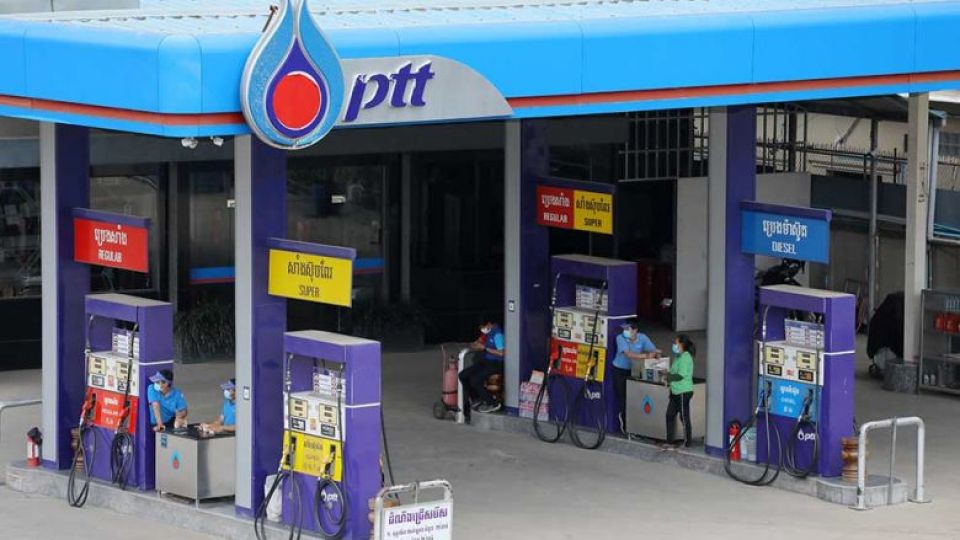August 19, 2022
PHNOM PENH – Prime Minister Hun Sen expressed concern over the rise in inflation caused by rising global oil prices, urging Cambodia to strengthen monetary policy by boosting riel purchases.
Making the call in his speech at a graduation ceremony in University of Puthisastra in Phnom Penh, Hun Sen said the Ukraine conflict had pushed up global crude oil and food prices affecting Cambodia, which until recently was facing rising domestic retail fuel prices.
“We must maintain political stability and macroeconomic stability. Prevent [further] inflation and maintain purchasing power in riel. I’m very worried about rising oil prices. I’m not too worried about rising food prices, but rising oil prices is difficult.
“But these days, it is a good thing that oil prices have gradually dropped,” he said.
He requested local distributors at talks on adjustments to retail regular-grade fuel prices not to propose too large a hike – even if in line with international oil price trends – explaining that the importation of crude takes time.
“Although we are a small country, we are also affected by the global economic crisis because our economy is linked to the global market. So we also need to find a way to prevent this issue through our efforts to increase yields,” he said.
He added that ASEAN is not facing a big problem when it comes to commodities as these countries produce a lot of paddy rice, particularly Thailand, Vietnam, Myanmar and Cambodia.
“Among these four countries in ASEAN [Thailand, Vietnam, Myanmar, Cambodia], there is a surplus of at least 15 million tonnes of rice. India is also Asia’s largest rice producer, so food shortage is not an issue, but the big concern is the oil issue as it could lead to [higher] inflation, which we must work to prevent,” he said.
Senior economist Ky Sereyvath, director-general of the Institute of China Studies at the Royal Academy of Cambodia, told The Post on August 17 that economists are concerned about the effects of the turmoil in Ukraine on oil prices and the discovery of a new virus in China, which could cause food prices to rise.
“For me, I anticipate oil prices to rise until the first quarter of 2023, based on the fundamentals that there is no substitute. The whole world has almost a year left to find a substitute. The oil crisis will be resolved if oil reserves are found in Xinjiang, China and other countries,” he said.
Speaking at a press conference on August 2, Ministry of Economy and Finance spokesman Meas Soksensan said the inflation rate in Cambodia was within a manageable level, with the annual average inflation rate below five per cent and new figures at three per cent.
External and internal risks require the government to be ready to avoid and mitigate risk pressures and challenges that may eventually arise through the introduction and implementation of policy measures that respond to both macroeconomics and public finance, he said.
According to the National Bank of Cambodia, the protracted Russia-Ukraine conflict and sanctions on Moscow pushed inflation in Cambodia to a record 7.2 per cent in March, the highest level in over a decade.


